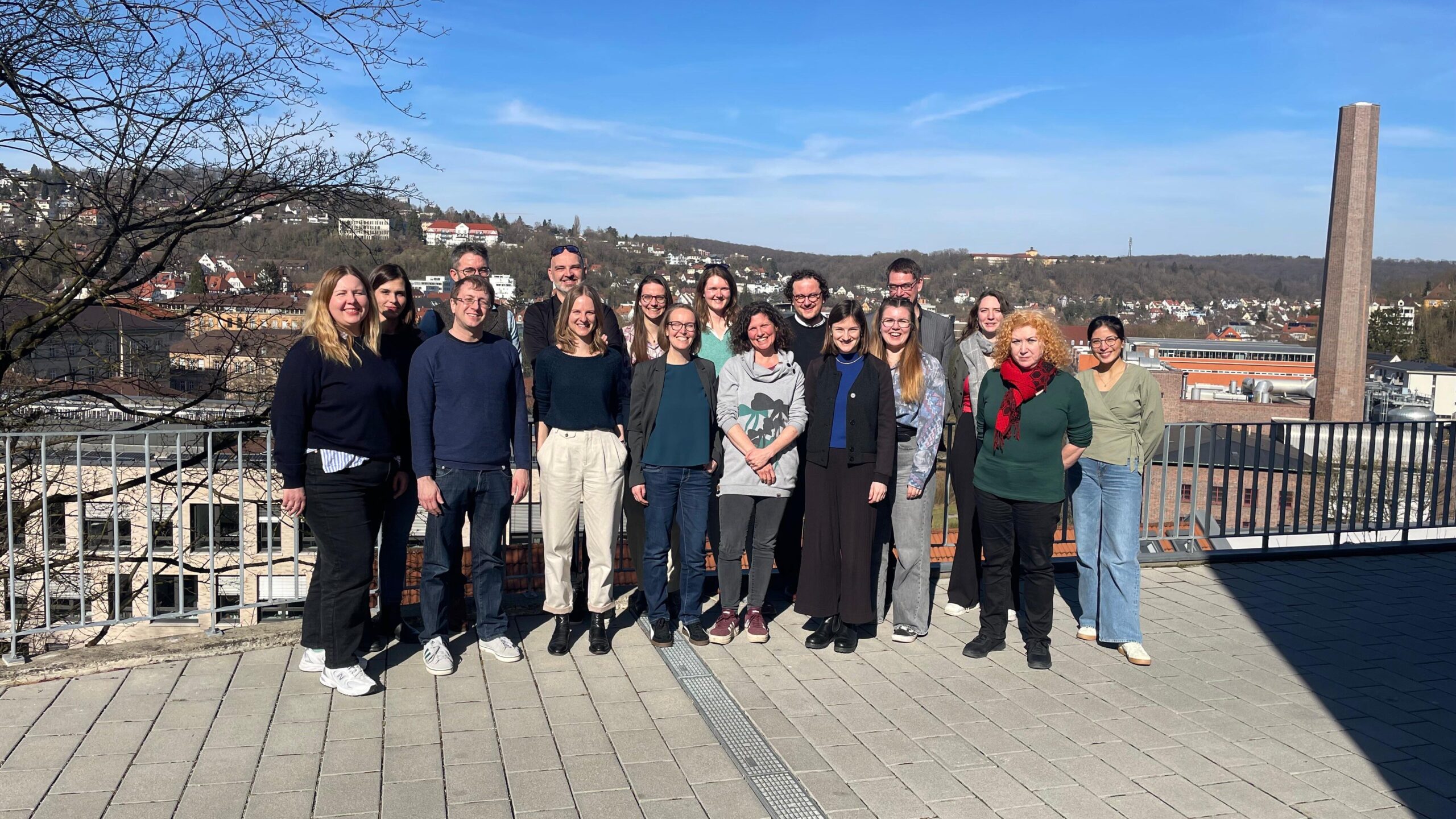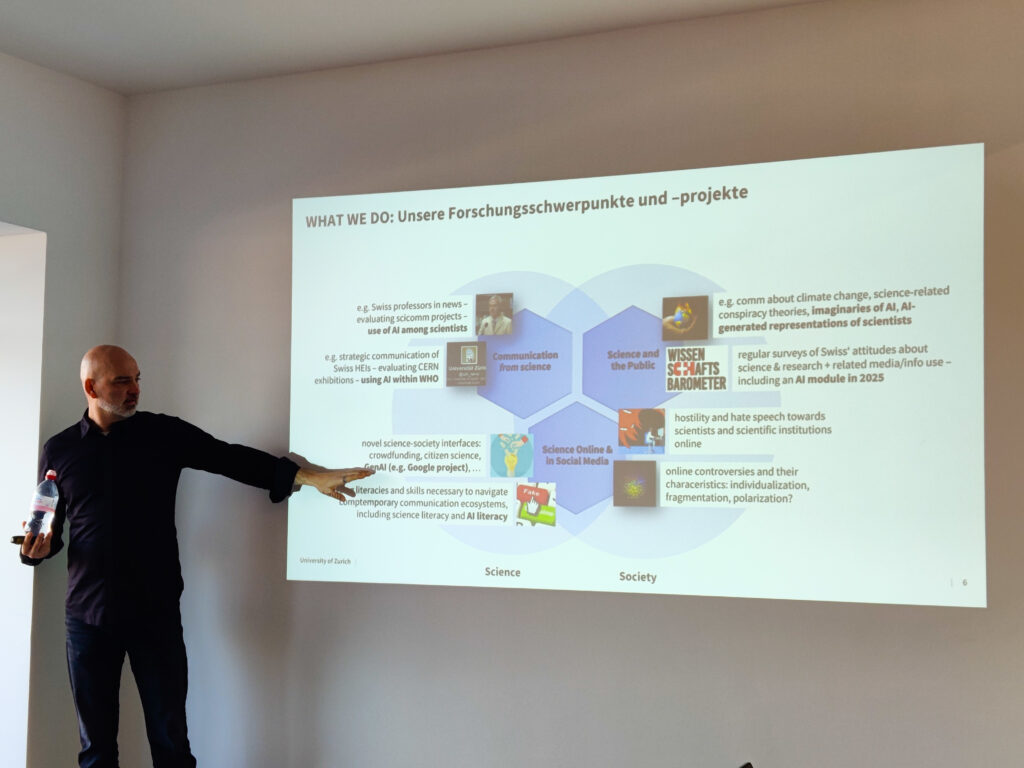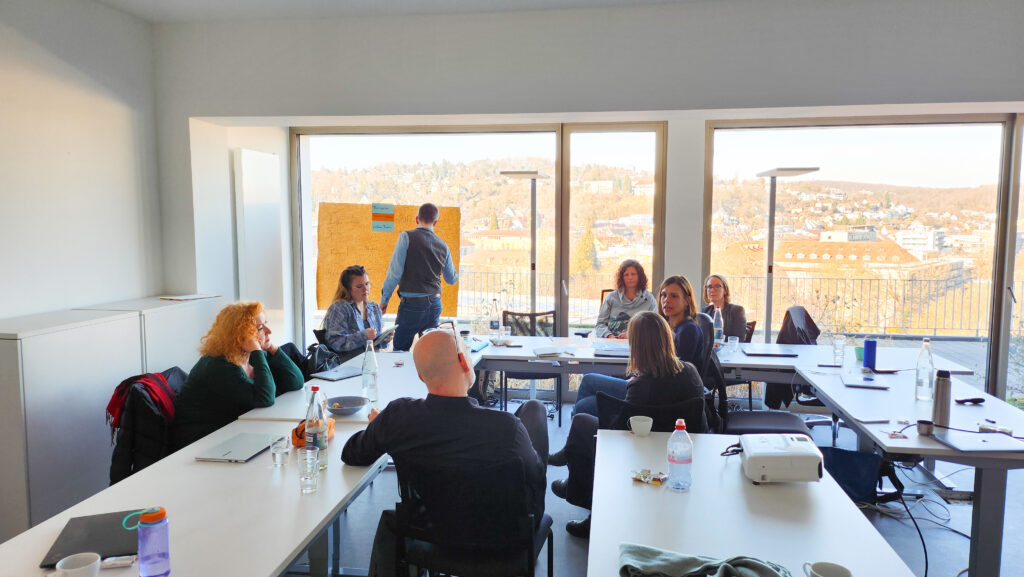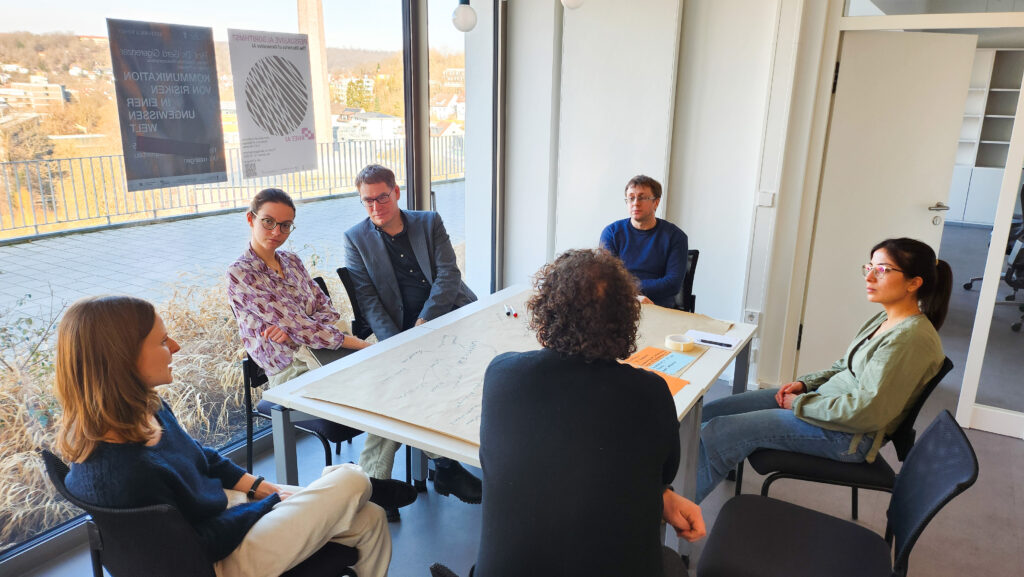On March 4, Mike Schäfer, Daniela Mahl and Sophia Volk from the Institute for Communication Science and Media Research (IKMZ) at UZH Zurich paid a visit to the RHET AI Center. Together, we presented our respective projects and research approaches in a workshop and exchanged ideas on science communication, target groups, power structures, AI skills and much more.

We started with an introduction by Olaf Kramer and Markus Gottschling, who after giving a theoretical introduction to the connection between science communication and rhetoric briefly presented our research center and gave an overview of the individual fields of work and orientations of our five units, before handing over to our guests from Zurich.
Mike Schäfer provided us with an insight into the diverse topics that he and his colleagues at the IKMZ deal with. There, around 90 employees research media-mediated communication as a core component of modern media and information societies from a social science perspective. The individual departments of the institute, such as “Media and Internet Governance” or “Political Communication” or “Media Socialization and Media Literacy”, always depict communication processes from their own specific perspectives.
Another key pillar of Mike Schäfer's work is the CHESS Competence Center – the Center for Higher Education and Science Studies. Here, research and publications on science communication are conducted from sociological, educational, and economic perspectives, actively contributing to public discourse and the further education of researchers in this field, including through a certificate program. Additionally, CHESS provides consulting services for institutions, including on communication-related topics.


Afterward, the session opened up, and all participants from Tübingen introduced themselves, their research backgrounds—such as which unit they belong to at the RHET AI Center—as well as their personal research focuses and interests. During this exchange, questions and topics related to science communication research and AI were collected for later discussion.
Following a hearty meal of Swabian cuisine—where lively conversations continued, ranging from internationalization in higher education to the mystery of "Kartoffelschlupfer" and specialized topics like language games—the group phase began:
Broadly speaking, the previously collected aspects were categorized into four thematic areas: "Science Communication and AI," "Literacy/Competence," "Participation and Practice," and "Power Structures." Participants rotated between the thematic tables every 20 minutes, ensuring that everyone had the opportunity to engage with each topic. This exchange revealed numerous intersections and parallels in the participants' research while also sparking fruitful discussions and inspiring new ideas.
A major common thread among the diverse topics and discussion directions was the critical and reflective engagement with AI—how it can be strengthened or even first established. This ranged from structural and political approaches, such as AI activism or governmental AI regulations, to more individual-level strategies, such as effective science communication and the development of AI literacy.



Discussions in small groups at the topic tables. Photos: RHET AI.
Afterwards, all participants gathered once again and shared their thoughts and impressions together in a plenary session. Once again, it became clear how inspiring this exchange was for the individual research directions and projects and that the networking between our Swiss guests from UZH and the RHET AI Center is also promising for the future. We'd be delighted to meet again!





